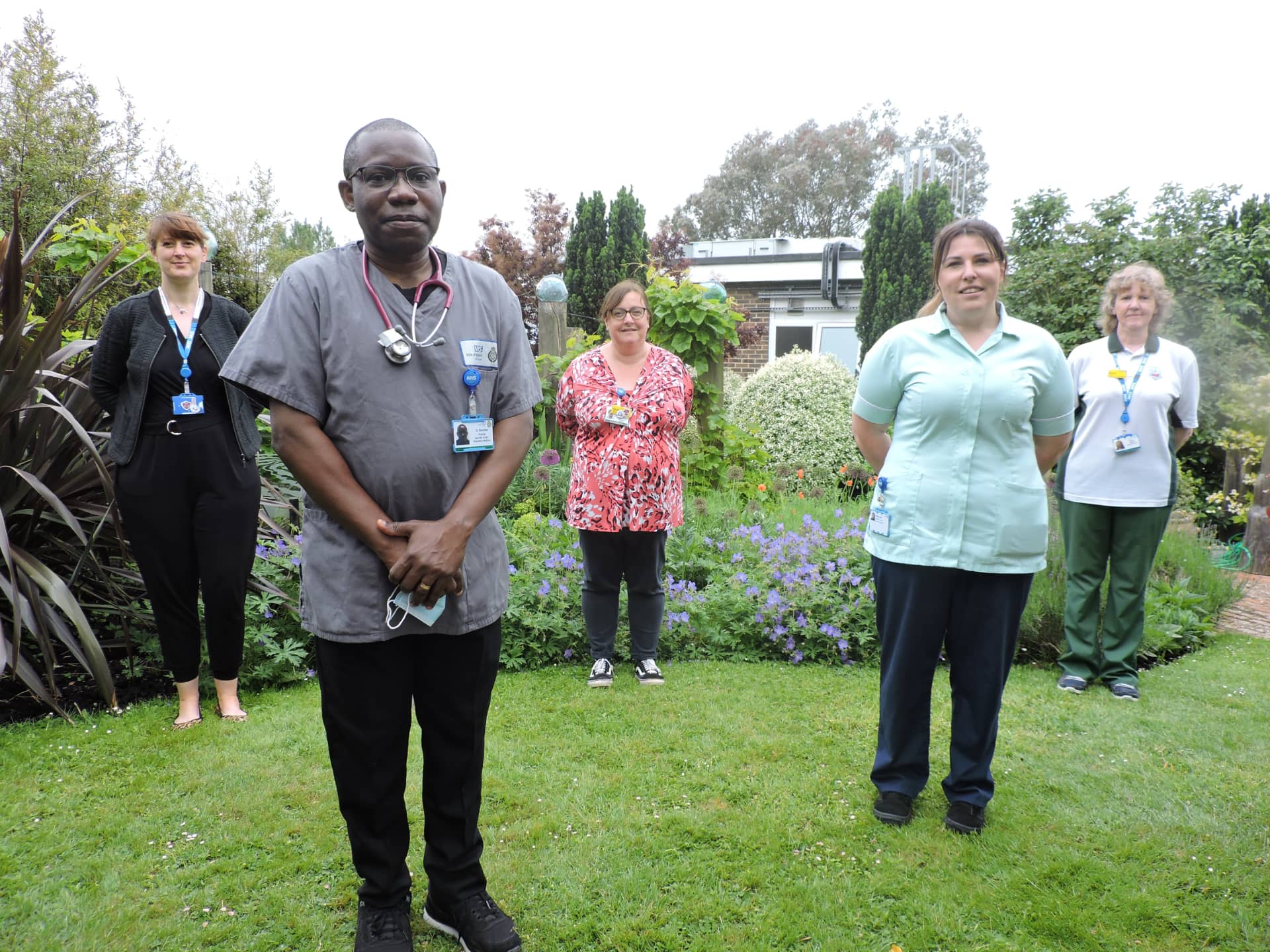The subject of Long Covid has been in the national news today (Thursday) after a survey found that around two million people in England are suffering with long-lasting symptoms following Covid.
News OnTheWight spoke with the head of the Isle of Wight Long Covid Clinic, Sarah Kearney, to find out more about how the service has been helping Islanders with Long Covid.
The IW Long Covid Service
At the beginning of the year (2021) a Long Covid Service (LCS) was launched on the Isle of Wight, initially with funding for three months, but now fully-funded until March 2022.
The symptoms of Long Covid, lasting for at least 12 weeks after having had Covid, include; tiredness, shortness of breath, coughs and chest pains, as well as headaches and muscle pain.
The team
The Long Covid Service consists of a multi-disciplinary team (MDT), including a specialist respiratory nurse (Sarah), a clinical psychologist, an occupational therapist and a consultant physician.
They meet each week and based on the referral from their GP they discuss the most appropriate person for a patient to see.
The App
The Long Covid Service utilises an App designed by Bart’s Hospital. When people are first referred to the LCS, they get enrolled onto the App, which has a range of symptom-based questionnaires that helps the specialists decide what the patient’s greatest need is and how they can best address that.
“Nothing quick and nothing easy about this”
As you might expect, no two patients are the same and no two days are the same for those working in the Service. Sarah explained,
“All of my colleagues would say that every say in the LCS is a learning day and although there are some key symptoms that people have, everyone’s case is different.
“The other thing we are learning, is that there is nothing quick and nothing easy about this.”
An individualised service
What the team aim to offer is an individualised service of support for patients to be able to self manage the symptoms, Sarah added,
“Because for things like breathless and fatigue, there’s no easy pill, and so it’s finding right solution for that person.”
140+ referrals
When we spoke to Sarah earlier this month, she said the LCS had received 140 referrals since January.
Many of those referrals were from patients who’d had Covid last year, so she anticipated having many more come through from the last peak of cases in January.
The range of ages being referred to LCS is wide, with no specific age groups showing up more than others.
How to get referred
Anyone unfortunate enough to be experiencing symptoms of Long Covid, will need to see their GP to be referred.
Sarah explained that LCS asks GPs to do the necessary investigations to rule out any other physical or medical reason for the patient’s symptoms.
She added,
“That’s really important, and then the GP will refer to us, and we’ll contact them usually within a week of getting the referral in order to get them onboarded to the App, and get the questionnaires completed.”
Support for the non-digital
For those patients who aren’t able to use the digital solution, a paper questionnaire can be sent, or to avoid having to complete and post back, the team’s administrator, Kirsty, is able to complete the questionnaire over the phone with patients.
They’ll also be sent helpful literature to read before their first assessment.
A six to eight week wait
Sarah explained that the waiting time for a first assessment is about six to eight weeks, but that there’s also access to the App for 12 months.
She explained,
“We offer access to the App for a year, so even if I’ve seen somebody a couple of a times and we’ve agreed we don’t need to do any further work together, they can use the App to track their symptoms.
“There are lots of really good, helpful resources on there that they can refer back to, such as graded exercises, ways of managing anxiety, breathing techniques, all of which they can have access to.”
“We really encourage it to be a two-way conversation”
Sarah went on to say,
“They can also message us through the App. If people haven’t heard from us and are concerned, or have new symptoms, they message us and we’ll message them back.
“We really encourage it to be a two-way conversation to work with people in partnership to try and get them where they need to be.”
Working closely with other providers
The LCS aims to provide a really personalised service, working closely with other providers. Sarah explained,
“We’re working closely with the South Coast Fatigue Service, because Chronic Fatigue seems to be one of the big things that people are struggling with.
“We’re also utilising our local IAPT (Access to Psychological Therapies) service for people with anxiety, or low mood which is a particular problem.”
Respiratory follow-up
Finally, the Respiratory Service at St Mary’s Hospital are following up with people who had been admitted to the hospital with Covid.
The LCS is potentially going to get busier, but from how it has been described by Sarah the service lead, it sounds as though patients will be offered the right support.
See the BBC Website for more information about the Long Covid survey.
Image: Front: Dr Adeniyi , Kirsty Large (Long Covid administrator)
Back L-R: Dr Anna Garrett (Consultant Clinical Psychologist), Sarah Kearney (Lead Respiratory Clinical Nurse Specialist and Long Covid Lead), Maura Faulkner (Acute and Stroke Therapy Lead and Professional Lead For Occupational Therapy)





